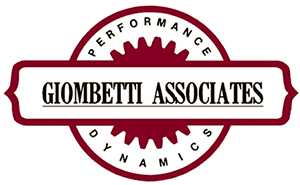
Self-reflection is like the spinach of personal growth: not always exciting, but undeniably good for you. And when it’s paired with a tool like our 360-Degree Review, it becomes a power-packed recipe for success in both your professional and personal life. But let’s be clear—this isn’t about endless navel-gazing or wallowing in self-criticism. Instead, it’s about channeling feedback into meaningful, intentional growth.
So, how do you go from feedback to flourishing? Let’s dig in.
Productive, Not Passive
Self-reflection often gets a bad rap as aimless pondering, but done right, it’s a high-impact activity. Here’s why: it isn’t just about acknowledging what’s not working; it’s about getting curious about why it’s happening and, most importantly, how to fix it. Think of it as the bridge between feedback and action. You’re identifying patterns, connecting the dots and setting yourself up to catch and correct behaviors in real time.
The goal? To make reflection a habit—one that keeps your growth goals front and center. By aligning your actions with your values and focusing on actionable insights, you’ll see improvement ripple through both your personal and professional relationships.
Strategies for Meaningful Self-Reflection
Making self-reflection work for you requires some intentionality. Here are three strategies to maximize your insights:
- Approach with an Open Mind and Positive Attitude. Your mindset matters. Without an open and constructive outlook, you’ll miss opportunities to grow. Negative attitudes—like self-doubt or despair—can turn reflection into a downward spiral of self-criticism.
- Instead, cultivate a mindset of possibility. Choose achievable goals that stretch you without overwhelming you. For example, improving your public speaking skills might feel daunting, but tackling one small step, like practicing in front of a friend, is doable and builds momentum.
- Leverage Tools for Deeper Insights. Tools like 360-degree reviews and personality and behavioral assessments—such as our Performance Dynamics®—are game changers. These tools help you understand not just what needs improvement but also the why behind your behaviors. For instance, if you receive feedback about being a poor listener, an assessment might reveal that you’re often preoccupied with formulating responses. With this insight, you can focus on active listening strategies.
- Prepare for Challenges. Reflection isn’t just about looking back; it’s about looking ahead. Anticipate tricky situations and plan your responses in advance. By thinking through alternative approaches to recurring challenges, you’ll feel more prepared and confident—and less likely to repeat old patterns.
Turning Insights into Action
So, you’ve reflected—now what? Moving from insight to action requires a plan. Here’s how:
- Write Down Your Goals. Make them specific and keep them visible. Whether it’s a sticky note on your desk or a bold entry in your planner, visual reminders keep you focused.
- Practice Regularly. Professional athletes and top performers don’t just set goals—they practice daily to achieve them. Apply the same principle by identifying small, consistent actions that bring you closer to your objectives.
- Find Accountability Partners. Share your goals with trusted colleagues, mentors or friends who can provide honest feedback and encouragement. Regular check-ins will keep you on track and motivated.
Your Next Step Toward Growth
Self-reflection, paired with tools like 360-degree reviews and targeted coaching, is your secret ingredient for growth. Whether you’re fine-tuning a specific skill or pursuing big-picture goals, the key is to stay intentional and keep moving forward.
Ready to take the leap? Tools like our Performance Dynamics assessment, 360 Degree Review and Next-Level Coaching are here to guide you. Let’s unlock your full potential—one actionable insight at a time.

